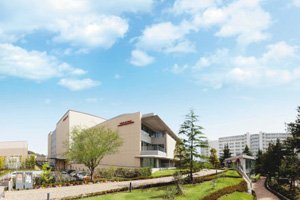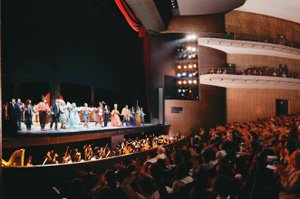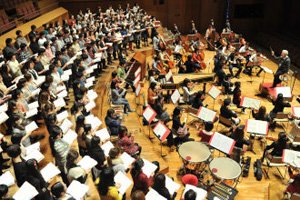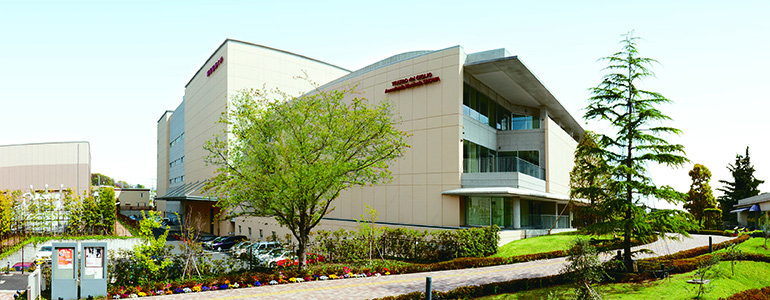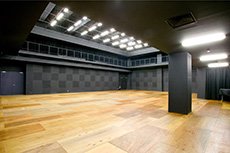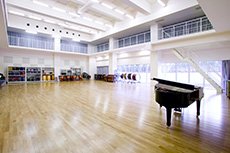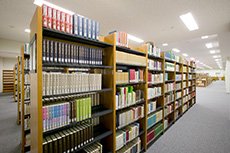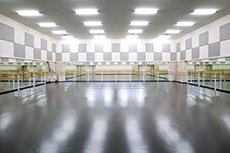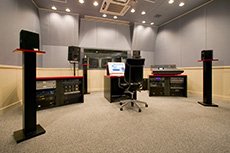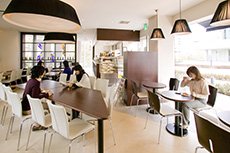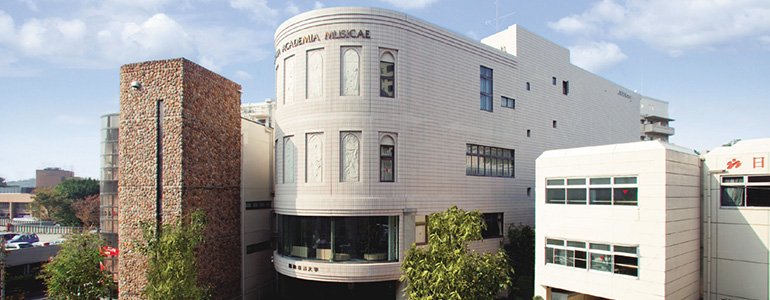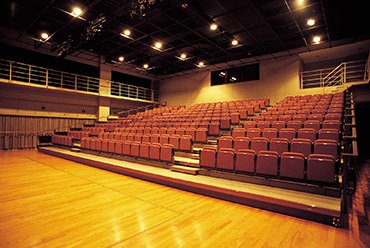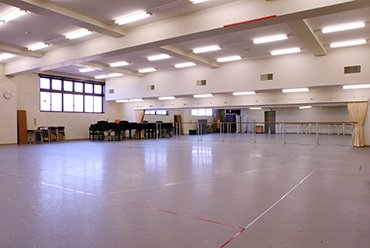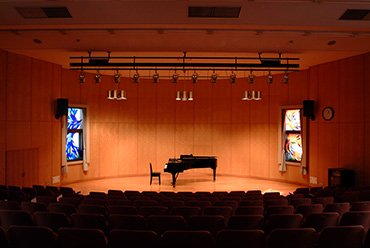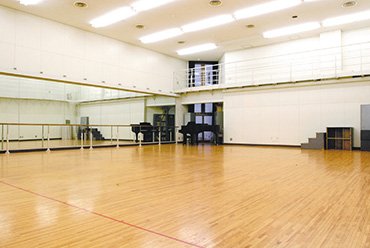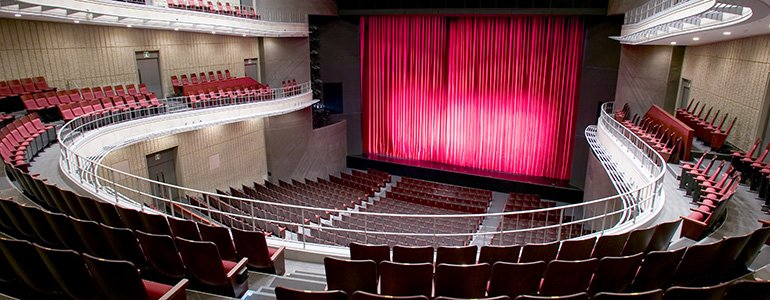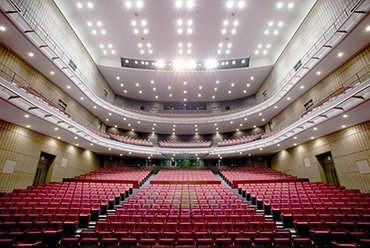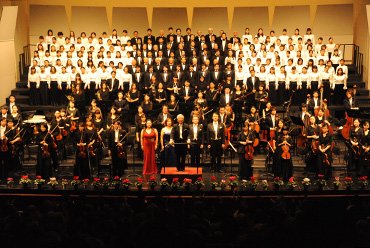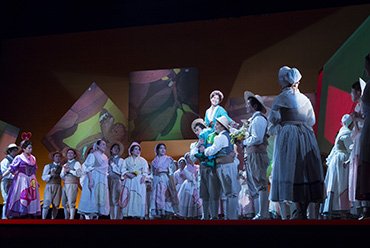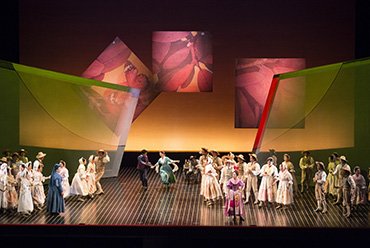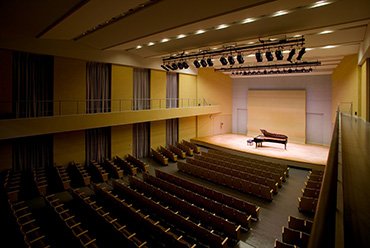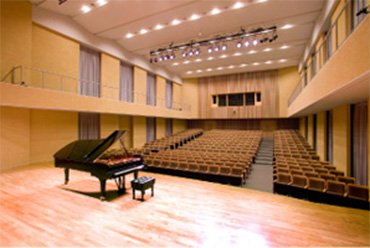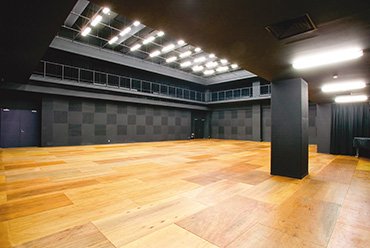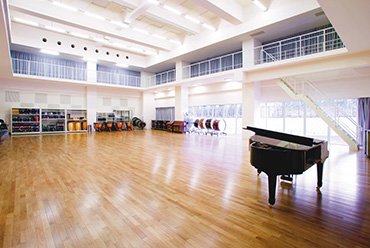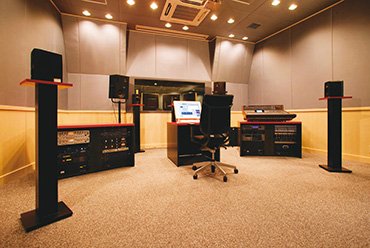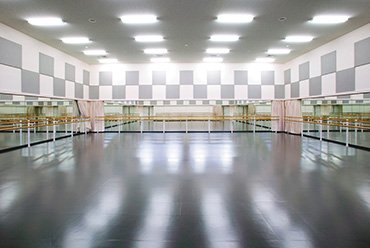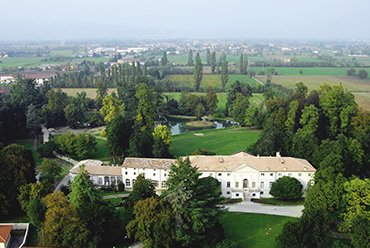| Apr-1930m |
The Keisuke Shimoyakawa Vocal Music Institute was founded by Keisuke Shimoyakawa. “A total education for Opera” was one of the most pioneering music educations in Japan at the time. |
| Jan-1940 |
The Tokyo Seisen Music School was granted a charter. The first premises were built between 1939 to 1940. |
| Apr-1945 |
The school buildings were destroyed by the fires of war. |
| May-1947 |
School reopens after the war and the evening classes started. Keizo Horiuchi, Manfred Gurlitt (composer and conductor), and Yoshie Fujiwara (the founder of Fujiwara Opera Company) joined the faculty.
With Manfred Gurlitt and Keisuke Shimoyakawa on the right.
|
| Apr-1952 |
The new school premises completed in Okubo, Shinjuku-ku, Tokyo. |
| Feb-1953 |
The Gurlitt Opera Association`s first production of Mozart`s The Magic Flute (Japan premier). The school cooperated in this production.
“Institute of Education” granted by the Ministry of Education* (*Ministry of Education, Culture, Sports, Science and Technology)
|
| Oct-1957 |
The first production of the Seisen Opera Project Mozart’s The Magic Flute in Nippon Seinenkan. The performance held in a public concert hall by a music school was unprecedented event at the time. |
| Apr-1958 |
The Tokyo Seisen Music School was accredited and given a license of the incorporated educational institute. |
| Jan-1962 |
The Seisen Opera production of Bellini`s La Sonnambula Japan premier at Bunkyo Kokaido.
From front left, Ken Nakamura (Elvino), Yasuhiko Aguni (Notary), Kiyoko Otani (Anima / Director)
|
| Feb-1969 |
The school was renamed to the Tosei Academy. |
| Jun-1971 |
Japan premier of Verdi`s Nabucco production (concert style) with the conductor Yutaka Hoshide, planning director Kyoichi Kuroda and Shinsei Symphony Orchestra* (*Tokyo Philharmonic Orchestra). |
| Oct-1976 |
An official exchange established with University of the Arts Bremen music department. |
| Dec-1976 |
The first college performance of Handel`s Messiah. |
| Nov-1979 |
The Seisen Opera production returned as the Academy Opera in Gluck`s Iphigeneia in Aulis. Japan premier with the conductor Yutaka Hoshide and the director Yasuhiko Aguni. |
| Oct-1980 |
The Showa College of Music Orchestra’s first autumn annual concert with the conductor and the guest professor Hans Löwlein, a former principal conductor of the Berlin State Opera. |
| Jun-1981 |
The academic exchange agreement was concluded with the Academy and the Conservatoire of the National Academy of Saint Cecilia in Rome. This Academy is one of the oldest music institutions in the world with over 400 years of history.
At the Academy of Saint Cecilia in 1981. From left, vice president Piccini, the president Ryuzo Okuda, the president Zafreddo and Professor Takatoshi Yoshida.
|
| Oct-1981 |
Affiliated school of music in Atsugi was founded.
From left, Keisuke Shimoyakawa, Professor Sunahara and Gian Carlo on the far right.
|
| May-1983 |
Professor Sergio Perticaroli (piano), the vice president of the National Academy of Saint Cecilia in Rome was invited for the first time. |
| Oct-1983 |
The Tosei Academy Opera production of Vitalini`s King David, world premier at Kan-i Hoken Hall. The opera was commissioned by the request of the Vatican to celebrate the 1950th anniversary of the Christ’s death. |
| Apr-1984 |
The Showa University of Music was established. (Atsugi, Kanagawa) |
| Nov-1985 |
The pianist Tatiana Nicolayeva, from the former USSR was invited. |
| May-1987 |
An Italian tenor Carlo Bergonzi was invited to hold a masterclass. |
| Apr-1989 |
The Tokyo Seisen Music School was renamed to the Showa Music and Art Academy. The campus was relocated to new premises in Shin-Yurigaoka (Kawasaki, Kanagawa). |
| Oct-1989 |
An exchange performance of Mozart`s The Marriage of Figaro with the University of Music and Performing Art Vienna. Angelika Kirchschlager, a student from the university performed the role of Cherubino. A masterclass held by a Bass & Baritone Walter Berry. |
| Apr-1991 |
The Showa University of Music Center of Lifelong Learning, and the Showa University of Music Opera Research Centre were established. |
| Sep-1993 |
The academic exchange agreement was concluded with the University of California, Los Angels (UCLA). |
| Oct-1993 |
The Academy Opera project of Scarlatti`s Mitridate Eupatore, Japan premiere. |
| May-1994 |
“Villa Chiericati-Showa”, the training facility in Italy was established in Schiavon, Veneto, North Italy. |
| Oct-1994 |
The Academy Opera project of Donizetti`s Olivo e Pasquale, Japan premier. The production also took place in the Teatro Scociale in Como, Italy, through the Japan-Italy musical culture exchange program “Music Rainbow” |
| Apr-1998 |
The Showa Graduate School of Music was established. (Atsugi, Kanagawa) |
| Nov-2001 |
Donizetti`s Don Pasquale production at New National Theater Playhouse, Tokyo. |
| Apr-2007 |
The Showa University of Music and the Showa Graduate School of Music moved to a newly built campus in Shin-Yurigaoka. |
| Nov-2007 |
The Academy Opera production of Donizetti`s Pia de’Tolomei, Japan premier. |
| Apr-2014 |
The doctoral degree programs in Showa Graduate School of Music was established. |

